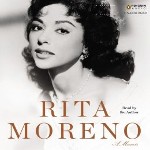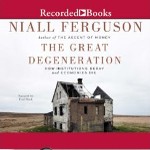|
McCarthy
is a frontier outpost in Alaska where "Papa" Pilgrim
(Robert Hale) arrived a decade ago with his wife and thirteen
kids, settling in with the welcoming support of a small
community that saw him as a hardworking, honest, even mesmerizing
embodiment of Christian family values. His property was
at an abandoned copper mine next to National Park Service
land, but when he bulldozed a road that intruded on that
land, the Park Service wrote him letters which went unanswered
or unread. An escalation ensued, as Pilgrim (Hale) began
to call them names and to make threats if the "harassment"
didn't end. Soon, the devout religious man began to look
like David Koresh, and his clan either messianic followers
or hostages and victims in need of rescue.
His
secret past, along with the nature of his sociopathy, is
revealed in PILGRIM'S
WILDERNESS, which has the subtitle "A
True Story of Faith and Madness on the Alaska Frontier."
Author Tom Kizzia is a reporter turned author, formerly
with the Anchorage Daily News. The simple grace of his writing
style is augmented by his command of detail. He has ferreted
out the truth, as was his task in The Wake of the Unseen
Object, (and with an investigator's dogged tenacity.) What
emerges is a never boring chronicle of the clash between
government bureaucracy and fanatical individualism (gone
nuts.) Links to old Texas money, the FBI, and the movie
Easy Rider, along with abuse and incest, make up some of
the surprises in a story that sounds like grist for an independent
film that could make the rounds of festivals, winning awards
along the way, (if not the attention of Hollywood, which
is too busy making blockbusters featuring giant robots these
days.) Especially gripping, after all the clash of environmentalists
versus land rights, is the revelation of Robert Hale in
the courtroom as a man who beat his daughter and told her
she would go to hell if she didn't have sex with him. Unrepentant
to the end, and even after all the damning testimony of
his own children, Hale claimed to be a persecuted follower
of Christ doing "the Lord's work." The judge didn't
buy it. Neither did anyone else. So everyone who spoke at
his graveside commended his soul---not to heaven---but to
hell. Actor Fred Sanders narrates, with
a documentarian tone guiding often very powerful words. |
|
|
Why
is it, when people die, there is renewed interest in their
work?
Is
it the simple fact that their death is in the news, or are
there other reasons? Nora Ephron's 1983 novel HEARTBURN
has been given a new reading by none other than
Meryl Streep in a new production (since Ephron's
death last year.) The writer of Sleepless in Seattle offers
up a comic interpretation of the breakup of a so-called
"perfect" marriage, featuring a pregnant Rachel
Samstat from her wandering husband Mark. Considered by many
critics to be one of the best writers of fictional women's
characters, Ephron also penned the movies When Harry
Met Sally and Silkwood (hence Streep) and
the books Wallflower at the Orgy, Crazy Salad, and Scribble
Scribble, (all are also new in production, as read
by Kathe Mazur.) Streep displays her innate sense
of dramatic arc and timing, as well as her gift of creating
characters, and it is unusual to hear her read exposition
too, although this is a first person tale so that is mostly
in-character as well. |
|
|
CRAZY
SALAD and SCRIBBLE SCRIBBLE are combined into one audiobook,
the latter being a David Foster Wallace--worthy series of
essays on journalism, including the cultural reasons for
creating People magazine (more people don't like to read),
the food porn industry (how critics get into trouble, and
the fine line between superlatives and going over the top),
and why photos of a woman falling to her death enraged readers,
who shouted exploitation when they really don't want to
be reminded of their own mortality. (Ephron here sided with
running the photos "because they are stunning, not
garish" and "because dying is a part of living"
and because atrocities in crime and war continue because
people are not allowed to see the end result of violence.)
|
|
|
Humorist
David Rakoff also died in August of last year after completing
his last short novel: LOVE,
DISHONOR, MARRY, DIE, CHERISH, PERISH. Quite an odd
title to end a career writing for magazines, public radio,
and screen. But that's not the biggest puzzle here. He also
reads the book on audio, which is odd because his voice
is weak, and often trails off into unintelligibility and
hoarseness. He is obviously dying, and so his poetic and
satirical swipes at Reagan, postwar California, Man Men
in New York in the 1950s, marriage, and the American dream
can be lost to those trying to listen, especially in traffic
in their cars. If Rakoff has a message, it's that kindness
can make cruelty bearable, and beauty can be found everywhere,
if only we look for it. But this message may be lost, unfortunately,
for audiobook listeners. If I had to guess, Rakoff asked
to read this book, since he read his previous books, such
as Half Empty. And the publisher was just being kind. |
|
 |
Rita
Moreno dated Elvis, Howard Hughes, and Marlon Brando. She
worked alongside Gene Kelly, Gary Cooper, Yul Brynner, James
Garner, and Ann Miller. She won an Oscar, a Grammy, a Tony,
two Emmys, a Golden Globe, and the National Medal of Honor.
Called "the Spanish Elizabeth Taylor" by Louis
B. Mayer, she was typecast even after West Side Story, and
fought to be seen for who she was---a feisty, honest, multi-talented
performer. Her autobiography, RITA
MORENO, is best heard as read by the author in her own
inimitable style. What makes this biography special (and
especially on audio) is that you can hear Moreno's descriptive
memories come to life in real time, told chronologically
from her earliest recollections of childhood in Puerto Rico
to her journey to Brooklyn, and then to Hollywood. She seems
unafraid to reveal herself fully, both emotionally and in
thoughts and actions, and she talks at length about Marlon
and about Hollywood's studio system in a way that is always
personal and engaging. By the end you feel that you know
Rita, an actress whose stage show is appropriately titled
Life Without Makeup.
|
|
|
Finally,
it was the BBC video production CIVILIZATION--The
West and the Rest that drew me to the compelling and
cogent audiobook on which it is based. Author Niall Ferguson
narrates this story of the rise and eventual fall of western
civilization. He describes six "killer apps" that
made the West win in the game of commerce and influence
over the East, along with North America's success compared
to South America's.
First
is competition: six hundred years ago China was the dominate
progressive power, the seat of science and industry, with
ships that dwarfed those of England and Spain. Even France
was a squalid backwater by comparison. But China refused
to decentralize its power or to extend its influence, while
the West expanded and traded, establishing colonies and
fighting for territory. (So fortunes were reversed.) Science
is next. The Ottoman Turks lost against the West because
they emphasized religion in government, while secular governance
took prominence in Europe, with the Catholic church second.
So
Turkish sultans destroyed printed books in favor of religion-based
calligraphy, thereby nullifying progress in science and
the arts, while the West applied science to field artillery,
and won the day over swords. Next is democracy and property
rights. George Washington supported ownership of land by
everyone (albeit not slaves), while Simon Bolivar's rebellion
in the South (against Spain's elitist conquests) did not
then grant ordinary citizens the same rights of property
and votes. Thus, South America, even with equally vast natural
resources, became mired in dysfunctional tyrannies and social
unrest while the United States went forward into enlightened
progress and freedom. The other killer apps are Medicine,
Consumerism, and the Work Ethic. Ferguson places emphasis
on this last, showing that Protestant religion (as opposed
to Islamic or even Catholic faiths) has inspired industry,
and has spread to China in recent years (while declining
in Europe, resulting in fewer hours worked there, and an
increase in debt.) The reason for the Protestant work ethic's
decline in Europe is due to state sponsored (and fewer)
churches, while in America there is competition among many
churches, and full separation of church and state. (Which
is not to say Protestant religion is not without corruption
too.)
 |
The
most important point Ferguson makes is that these apps apply
to all societies, and history shows that no civilization
has dominated for long. China is now applying these apps
in ways they never have before, and gaining ground over
the United States. Brazil has applied the apps to get out
of debt, and while there is still social turmoil and corruption
there, many Brazilians enjoy such prosperity that they have
been buying second homes and condos in Miami by the hundreds,
and at bargain rates after our near economic collapse (due
in part to our substitution of predatory banking over manufacturing.)
Are we doomed to fall soon? That is uncertain. What is certain
is that Asian countries have discovered our roots, and are
exploiting them now and for the first time, and this forebodes
huge environmental hazards as well as a relative decline
in Western standards of living. Ferguson's newest book is
The
Great Degeneration--How Institutions Decay and Economies
Die. It's read by Paul Slack.
|
|
| (Making news is someone in Florida winning over half
a billion dollars in the Powerball. Coincidentally, my novel
THE INSTANT CELEBRITY is about a $552 Million
Florida Powerball winner who disappears, buys a Caribbean
island, and finances an attack on a corrupt dictator so
that he can reemerge a hero. The audiobook version is "Fame
Island," read by Emmy winning film actor Kris
Tabori.)
|
|